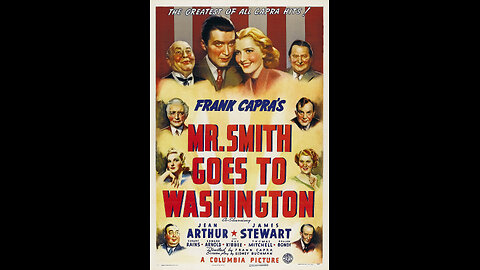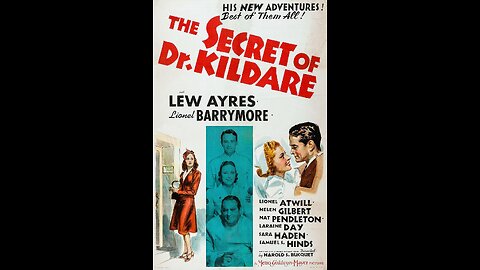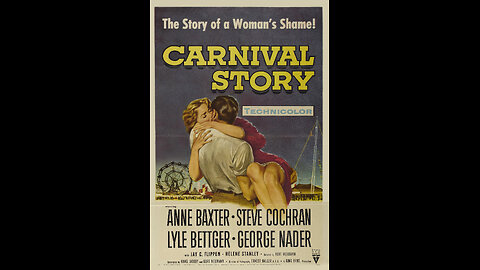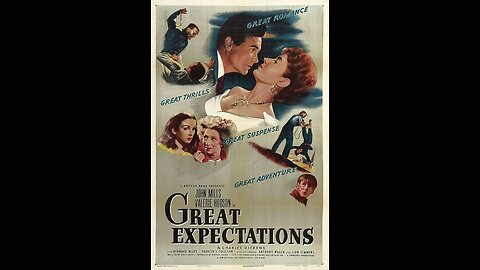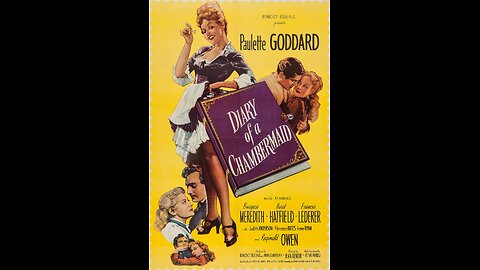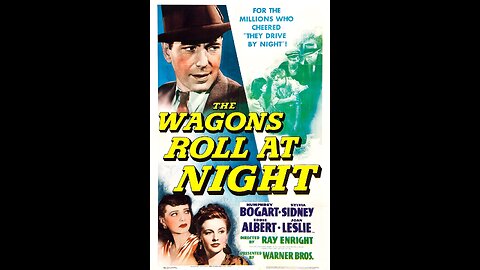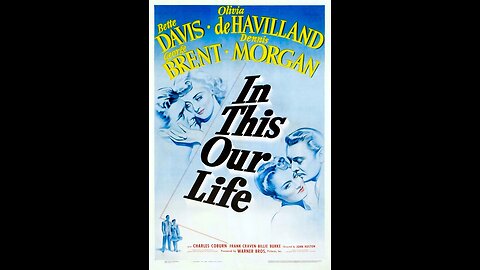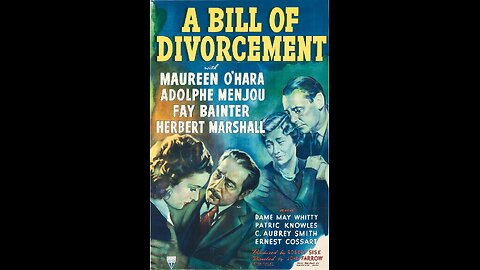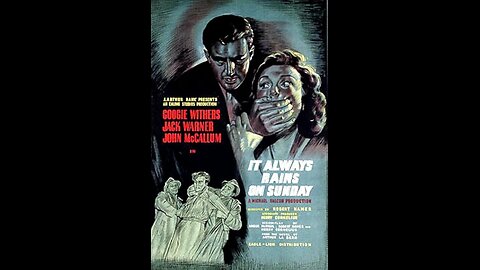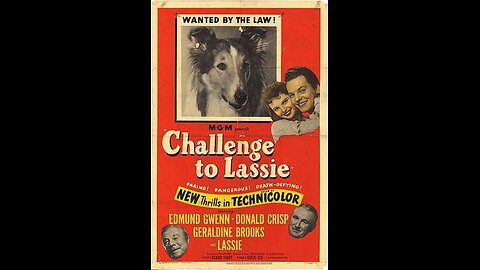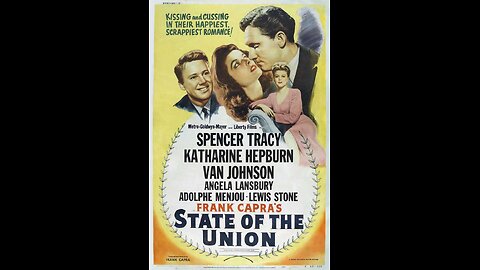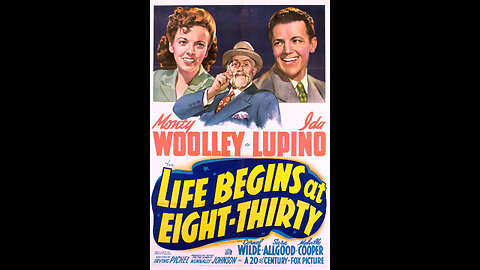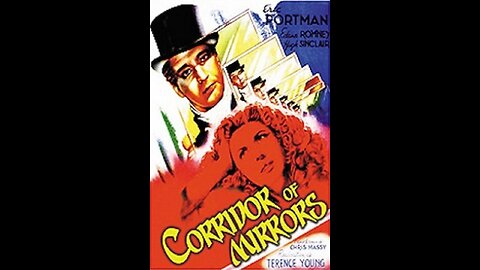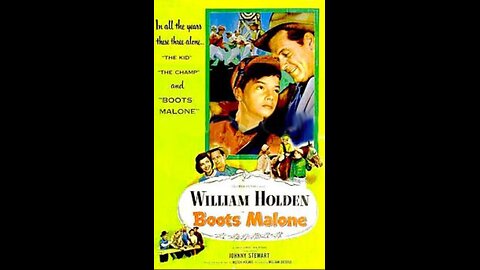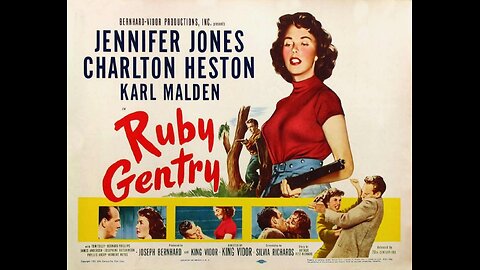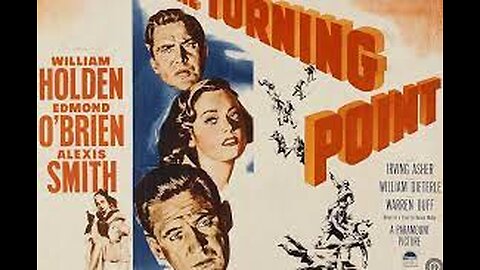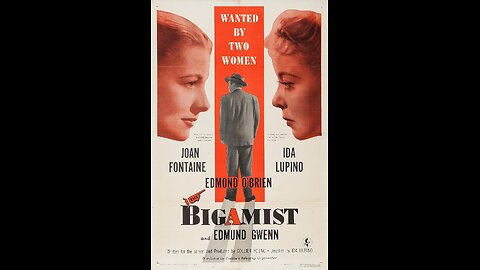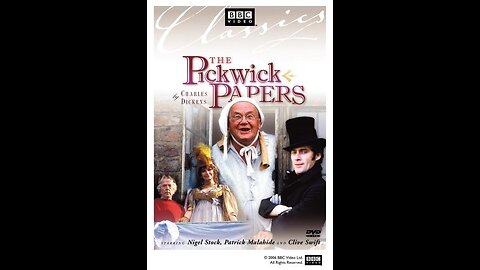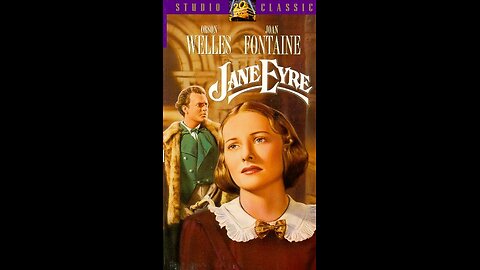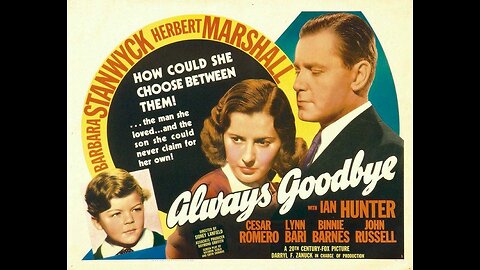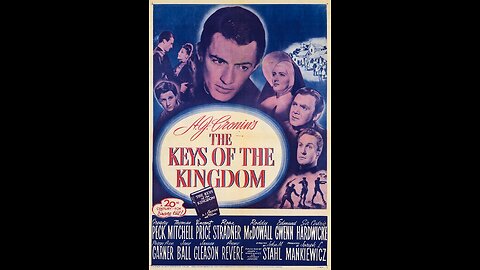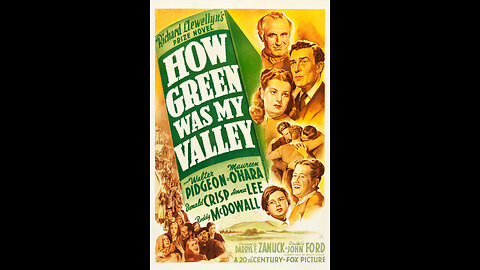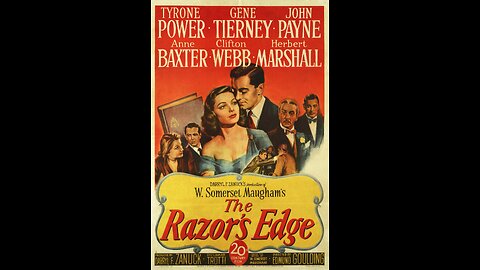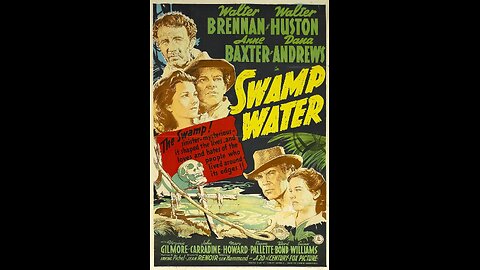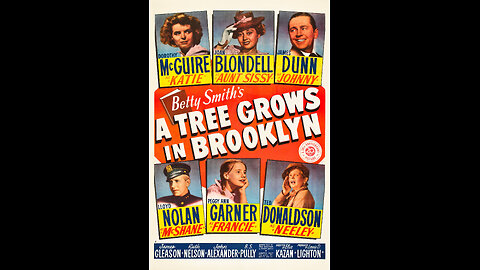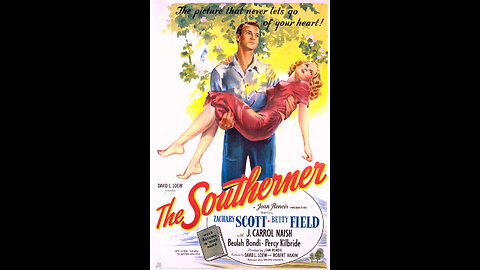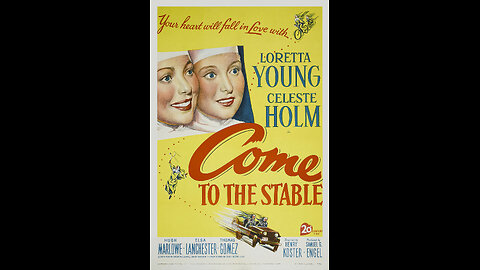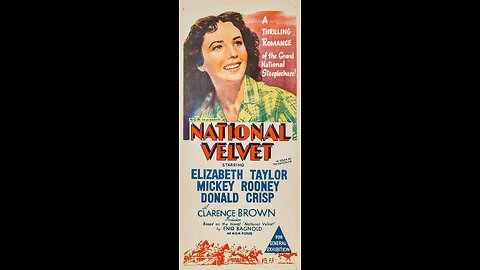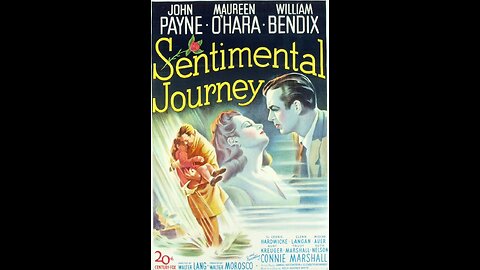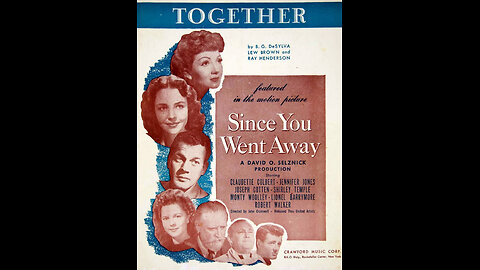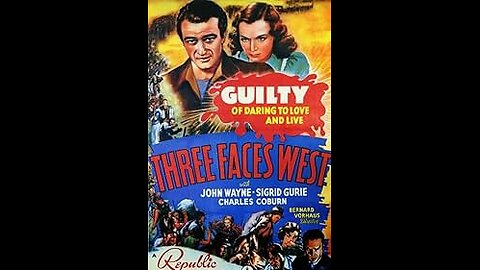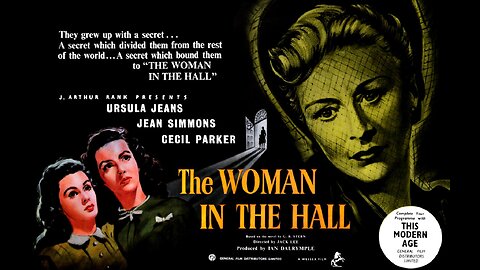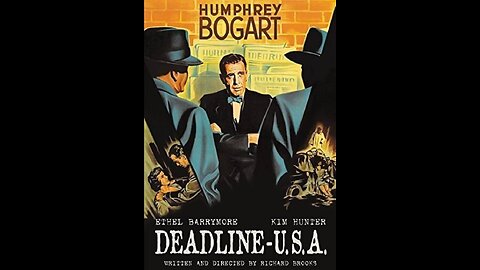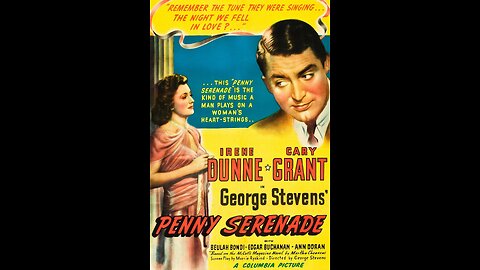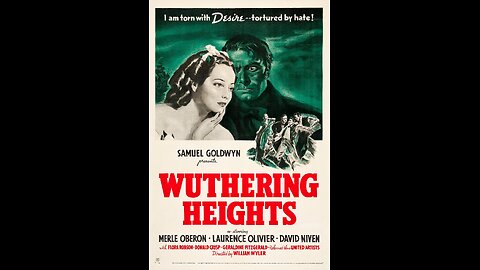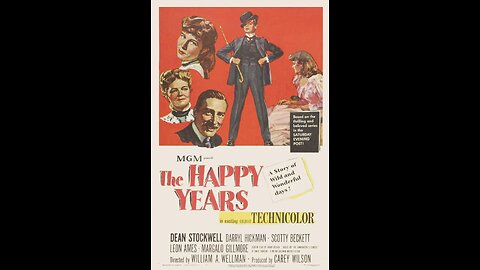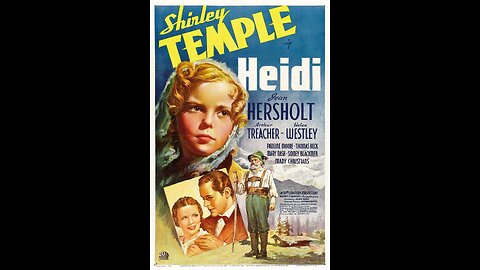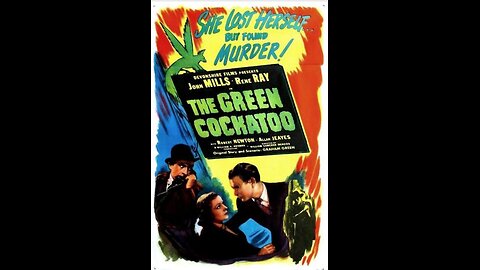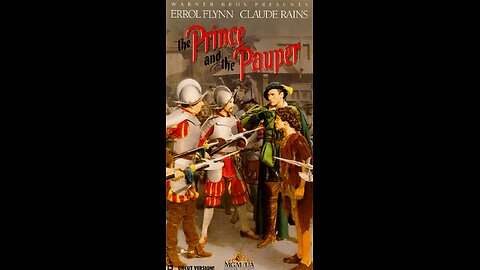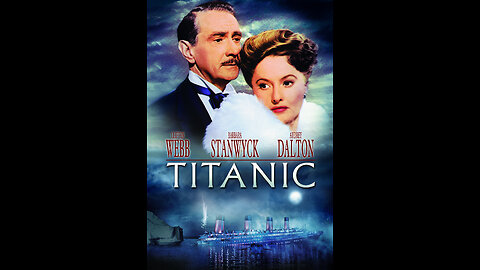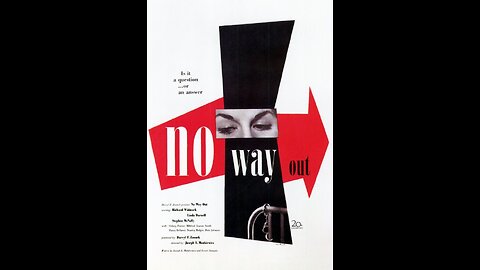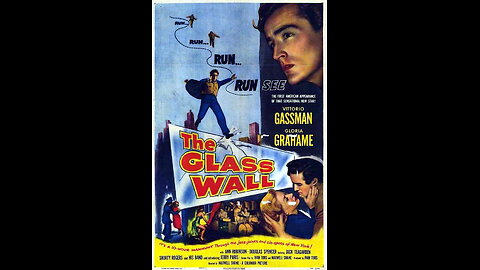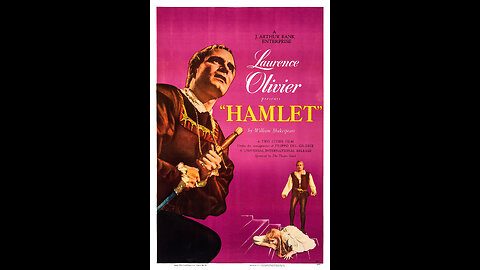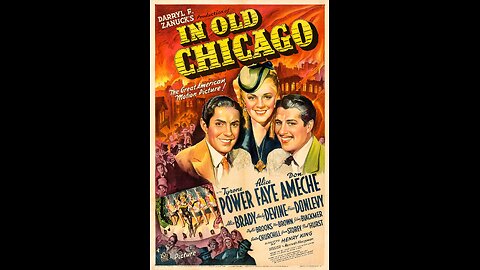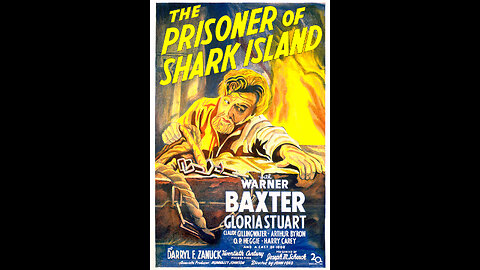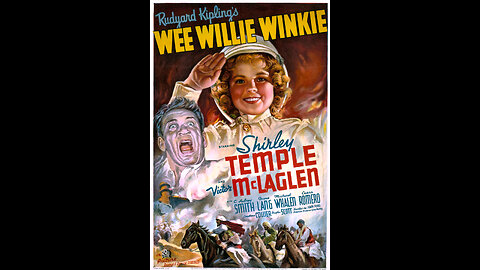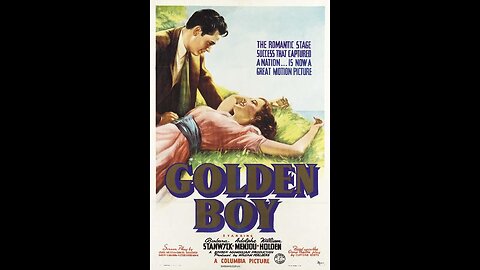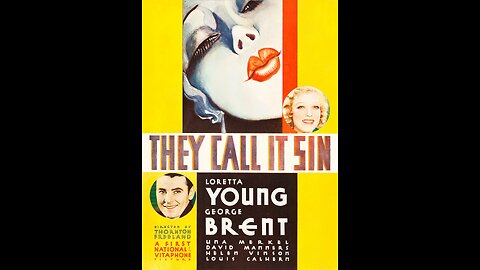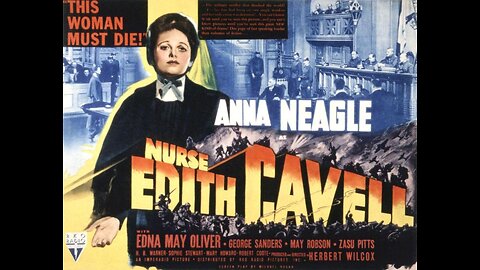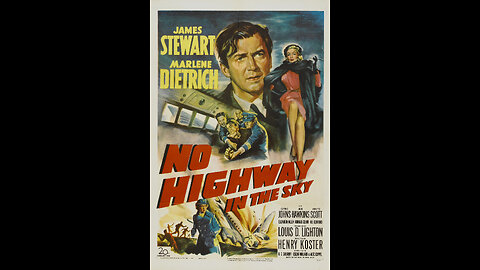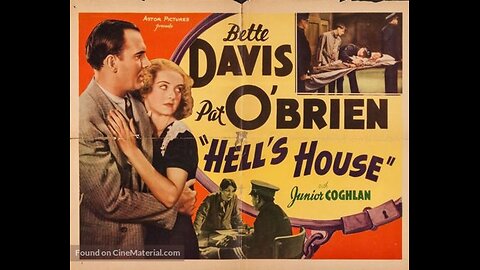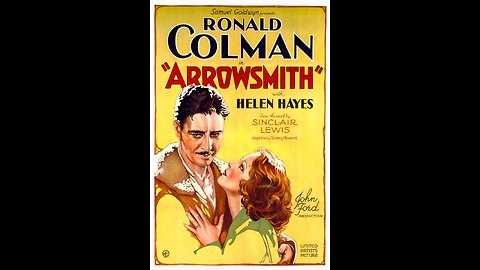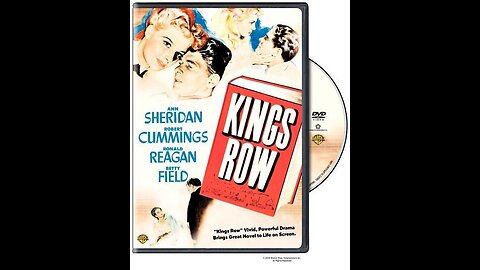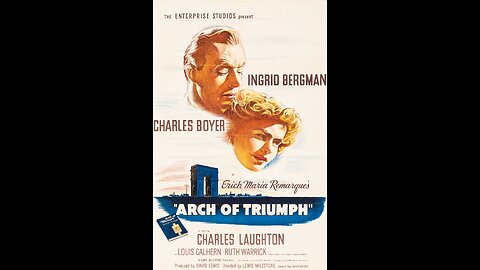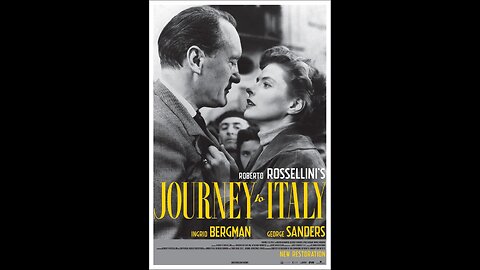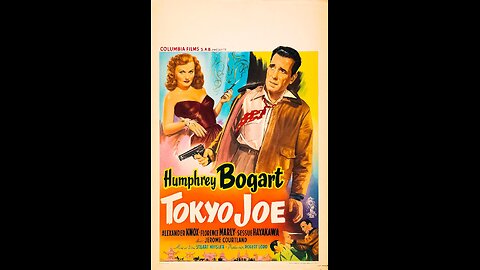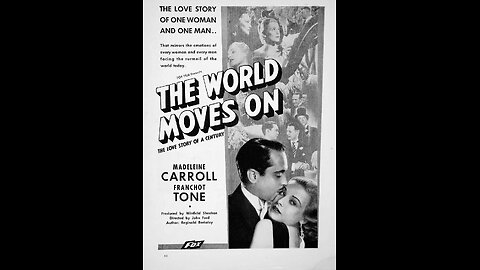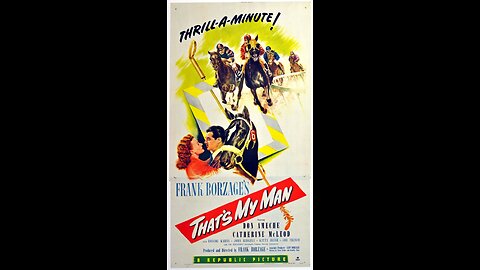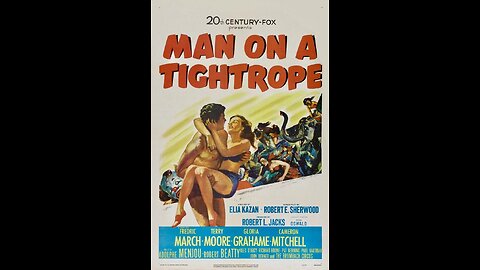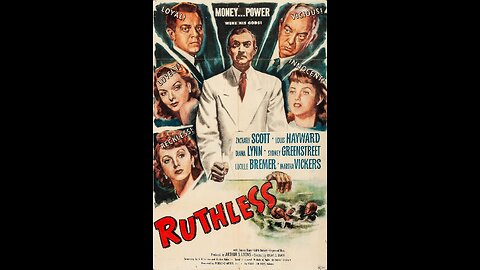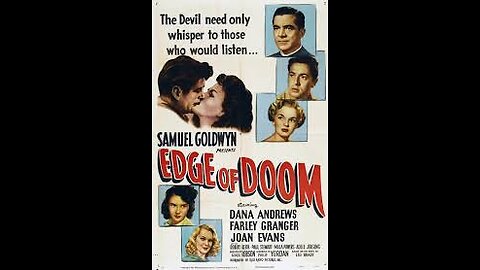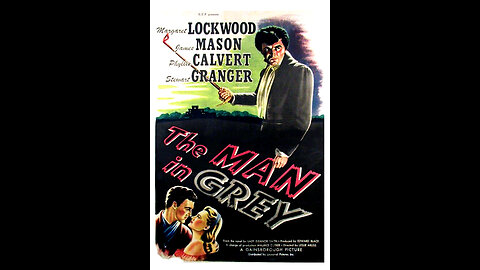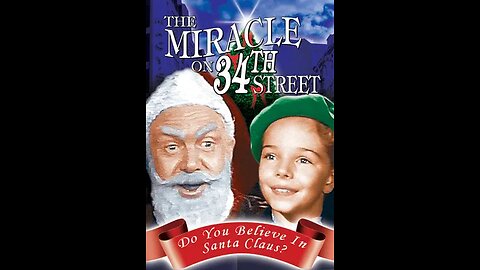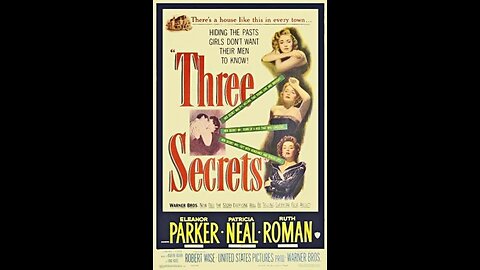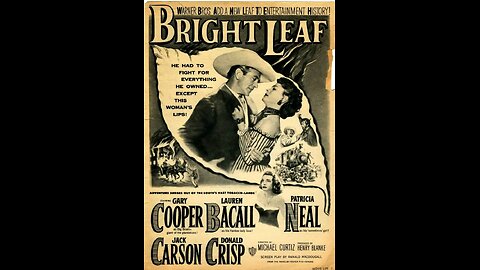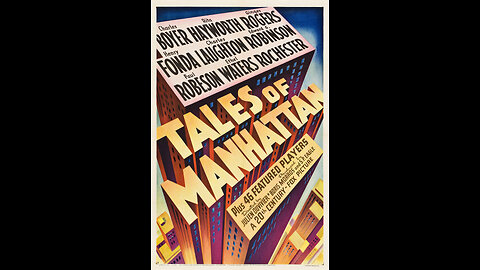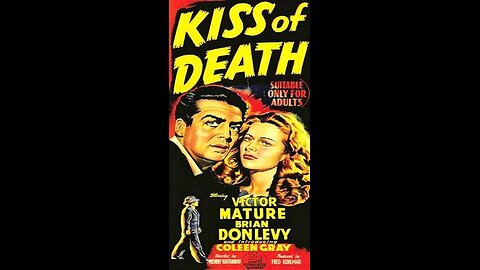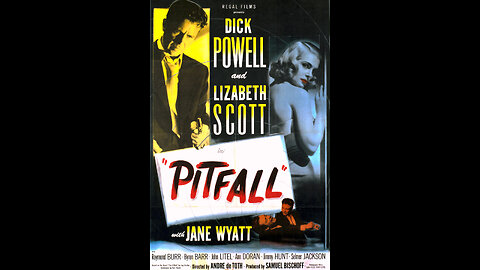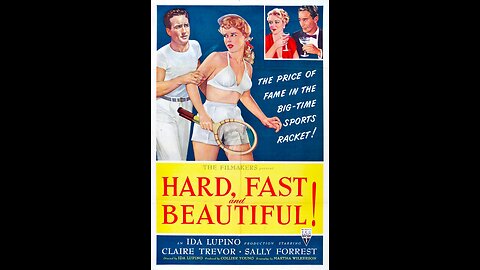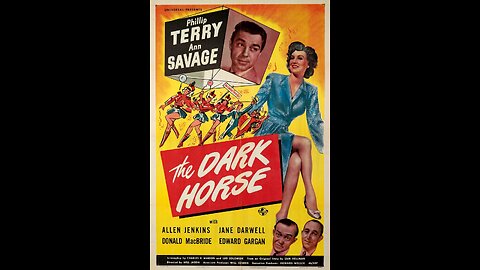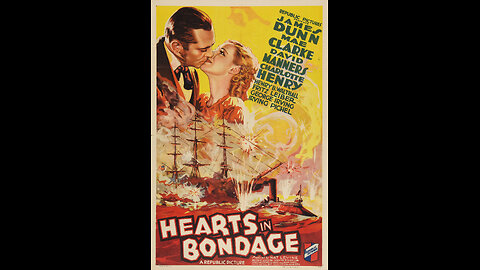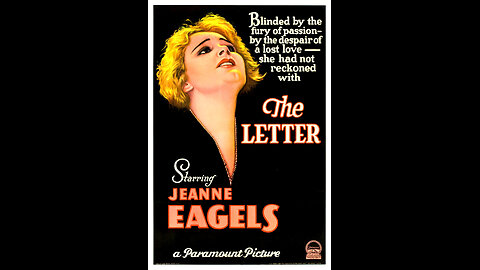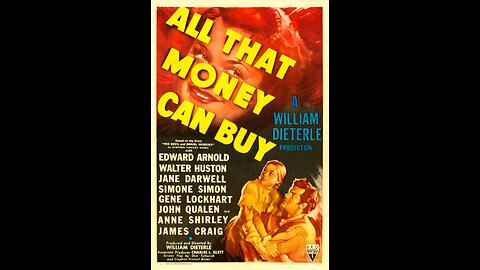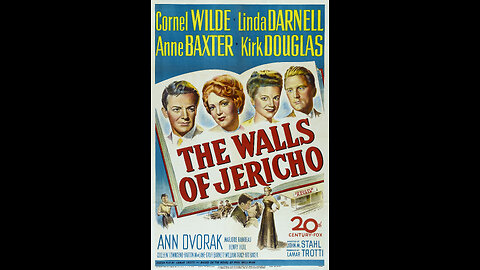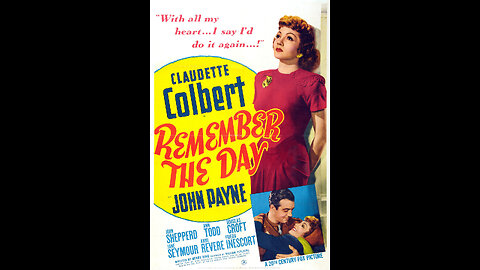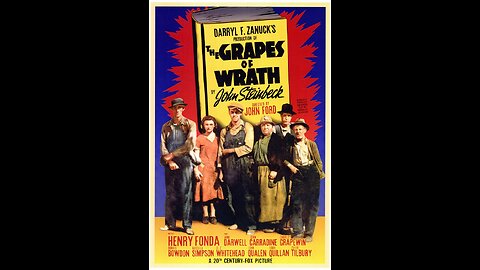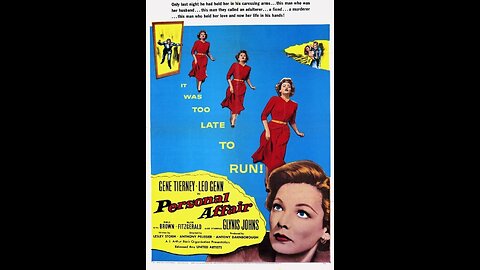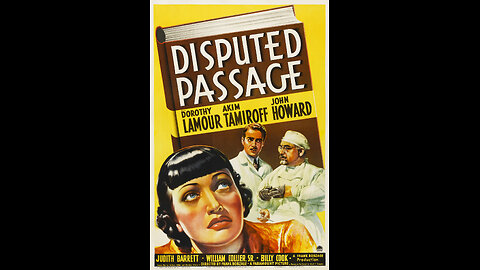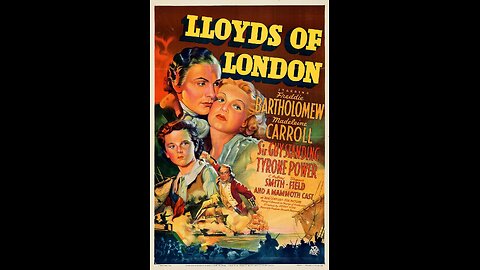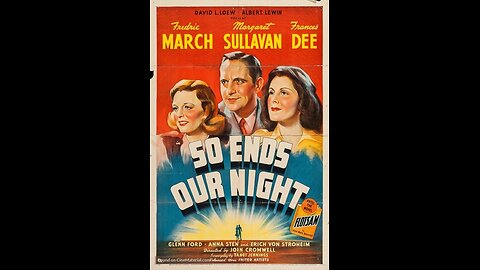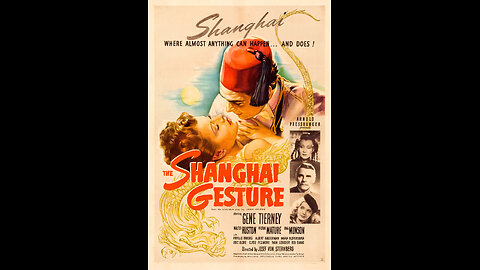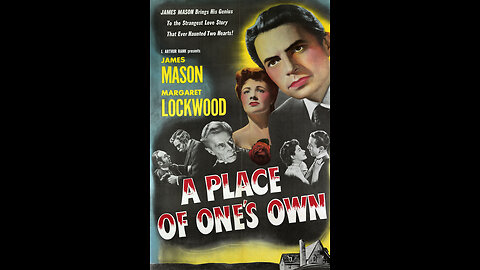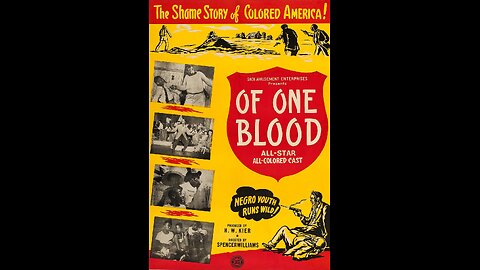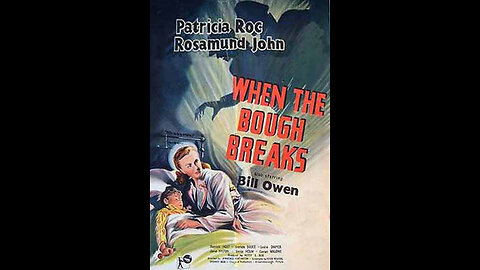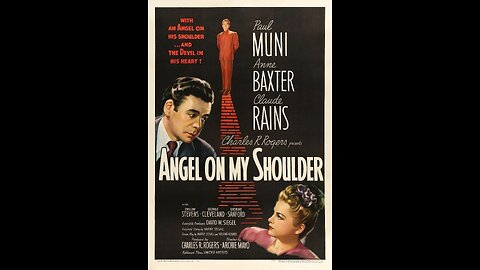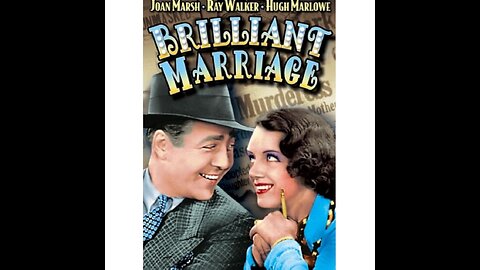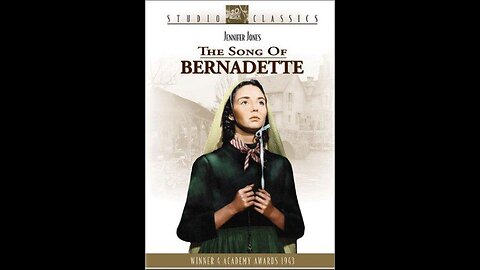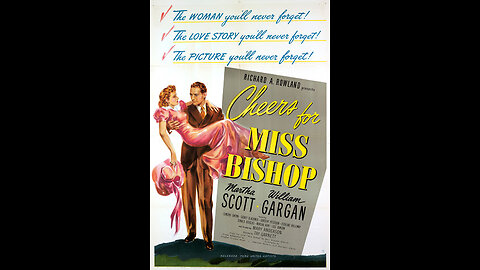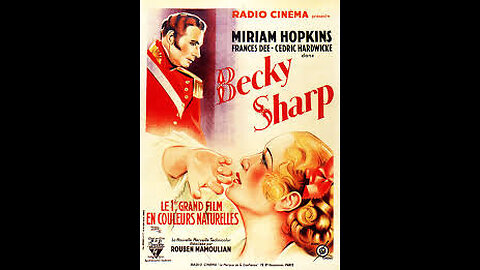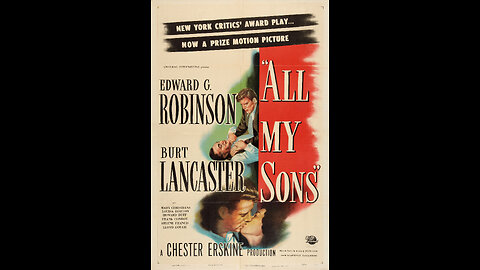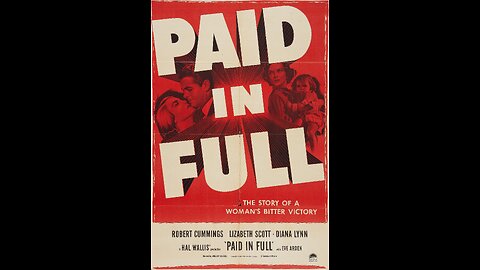Premium Only Content
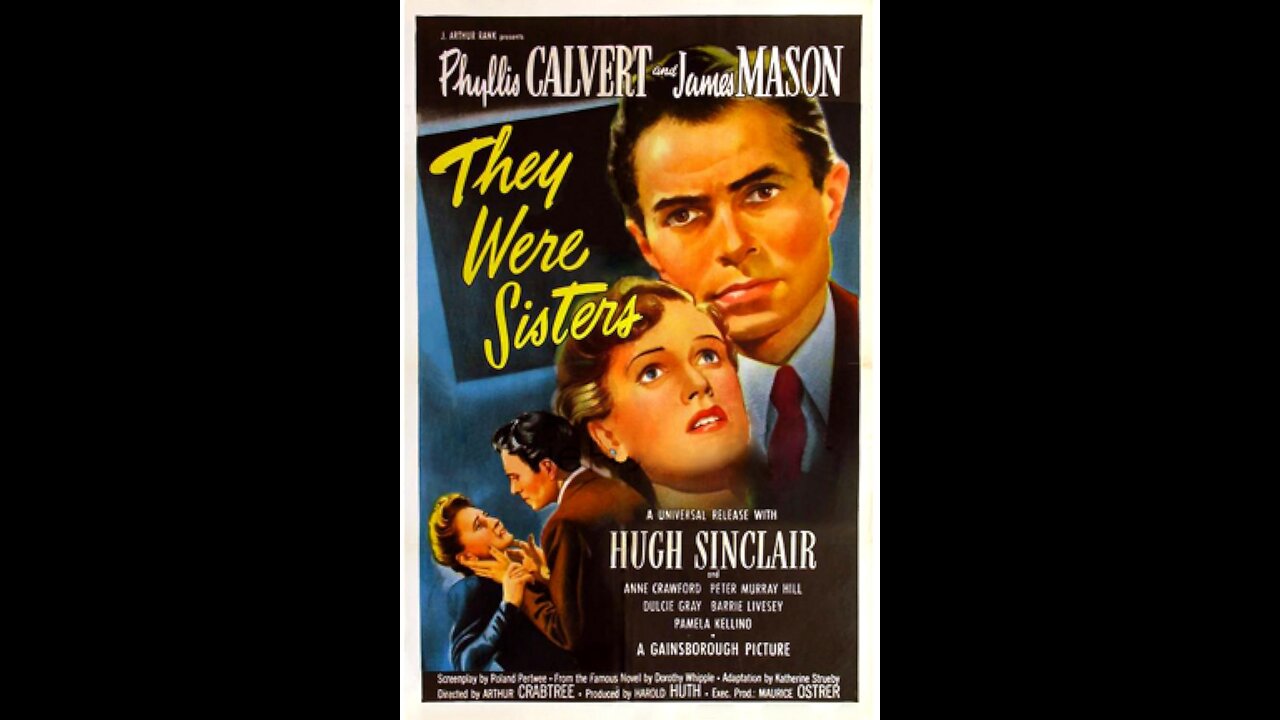
Mr. Smith Goes to Washington (1939) | Directed by Frank Capra
The Secret of Dr. Kildare (1939) | Directed by Harold S. Bucquet
Carnival Story (1954) | Directed by Kurt Neumann
Great Expectations (1946) | Directed by David Lean
The Diary of a Chambermaid (1946) | Directed by Jean Renoir
The Wagons Roll at Night (1941) | Directed by Ray Enright
The Wreck of the Hesperus (1948) | Directed by John Hoffman
In This Our Life (1942) | Directed by John Huston
A Bill of Divorcement (1940) | Directed by John Farrow
It Always Rains on Sundays (1947) | Directed by Robert Hamer
Challenge to Lassie (1949) | Directed by Richard Thorpe
State of the Union (1948) | Directed by Frank Capra
Life Begins at Eight-Thirty (1942) | Directed by Irving Pichel
Home Town Story (1951) | Directed by Arthur Pierson
Corridor of Mirrors (1948) | Directed by Terence Young
Boots Malone (1952) | Directed by William Dieterle
Ruby Gentry (1952) | Southern Gothic melodrama directed by King Vidor
Bad for Each Other (1953 ) | American drama film directed by Irving Rapper
Dragonwyck (1946) | A Gothic drama film directed by Joseph L. Mankiewicz
Oliver Twist (1948) | Directed by David Lean
The Turning Point (1952) | British drama film directed by Michael Relph
The Bigamist (1953) | American drama film directed by and starring Ida Lupino
The Bells of St. Mary's (1945) | American drama film directed by Leo McCarey
The Pickwick Papers (1952) | Directed by Noel Langley
Little Lord Fauntleroy (1936) | American drama film directed by John Cromwell
The Rains Came (1939) | American drama film directed by Clarence Brown
Jane Eyre (1943) : Director - Robert Stevenson
Always Goodbye (1938) | Directed by Sidney Lanfield
Molly and Me (1945) | Directed by Lewis Seiler
Pinky (1949) | Groundbreaking drama directed by Elia Kazan
The Keys of the Kingdom (1944) | Directed by John M. Stahl
How Green Was My Valley (1941) | Directed by John Ford
The Razor's Edge (1946) | Drama directed by Edmund Goulding
Swamp Water (1941) | A compelling drama directed by Jean Renoir
A Tree Grows in Brooklyn (1945) | Directed by Elia Kazan
The Southerner (1945) | Drama directed by Jean Renoir
Four in a Jeep (1951) | A drama film directed by Leopold Lindtberg
Come to the Stable (1949) | Directed by Henry Koster
National Velvet (1944) | Directed by Clarence Brown
Sentimental Journey (1946) | Directed by Walter Lang
Since You Went Away (1944) | American drama film directed by John Cromwell
"Three Faces West" (1940) | Directed by Bernard Vorhaus
The Green Promise (1949) | A family drama directed by William D. Russell
They Were Sisters (1945) | British drama film directed by Arthur Crabtree
The Woman in the Hall (1947) | British drama film directed by Jack Lee
Tobacco Road (1941) | Directed by John Ford
Lady for a Night (1942) | A captivating drama directed by Leigh Jason
Deadline USA (1952) | Directed by Richard Brooks
Penny Serenade (1941) | Directed by George Stevens
Wuthering Heights (1934) | Directed by William Wyler
The Little Princess (1939) | Directed by Walter Lang
The Happy Years (1950) | Directed by William A. Wellman
Heidi (1937) | Directed by Allan Dwan
The Green Cockatoo (1937) | British comedy directed by William Cameron Menzies
Now and Forever (1934) | Directed by Henry Hathaway
Leave Her to Heaven (1945) | Directed by John M. Stahl
The Prince and the Pauper (1937) | Directed by William Keighley
Beloved Enemy (1936) | Directed by H.C. Potter
Titanic (1953) | Directed by Jean Negulesco
No Way Out (1950) | Directed by Joseph L. Mankiewicz
The Adventures of Tom Sawyer (1938) | Directed by Norman Taurog
The Glass Wall (1953) | Directed by Maxwell Shane
Paula (1952) | Directed by Rudolph Maté
Cyrano de Bergerac (1950) | Directed by Michael Gordon
The Soldier and the Lady (1937) | Directed by George Nichols Jr.
Hamlet (1948) | Directed by Sir Laurence Olivier
The Seventh Veil (1945) | Directed by Compton Bennett
In Old Chicago (1937) | Directed by Henry King
The First of the Few (1942) / Spitfire | Directed by Leslie Howard
The Rocking Horse Winner (1949) | Directed by Anthony Pelissier
The Prisoner of Shark Island (1936) | Directed by John Ford
Wee Willie Winkie (1937) | Directed by John Ford
Golden Boy (1939) | Directed by Rouben Mamoulian
They Call It Sin (1932) | Directed by Thornton Freeland
A Letter to Three Wives (1949) | Directed by Joseph L. Mankiewicz
Nurse Edith Cavell (1939) | Directed by Herbert Wilcox
No Highway in the Sky (1951) | Directed by Henry Koster
Hell's House (1932) | Directed by Howard Higgin
Fourteen Hours (1951) | Directed by Henry Hathaway
The Little Foxes (1941) | Directed by William Wyler
The Bad Sister (1931) | Directed by Hobart Henley
The Fountainhead (1949) | Directed by King Vidor
Of Human Bondage (1934) | Directed by John Cromwell
Arrowsmith (1931) | Directed by John Ford
From Here to Eternity (1953) | Directed by Fred Zinnemann
Oliver Twist (1933) | Directed by William J. Cowen
King's Row (1942) | Directed by Sam Wood
Not Wanted (1949) | Directed by Elmer Clifton
Summer Storm (1944) | Directed by Douglas Sirk
Arch of Triumph (1948) | Directed by Lewis Milestone
Journey to Italy (1954) | Directed by Roberto Rossellini
Tokyo Joe (1949) | Directed by Stuart Heisler
The World Moves On (1934) | Directed by John Ford
That's My Man (1947) | Directed by Frank Borzage
Brute Force (1947) | Directed by Jules Dassin
Wicked Woman (1953) | Directed by Russell Rouse
Lifeboat (1944) | Directed by Alfred Hitchcock
21 Days (1940) | Directed by Basil Dean
The President's Lady (1953) | A captivating historical drama
I Was a Shoplifter (1950) | A film noir crime drama directed by Charles Lamont
Man on a Tightrope (1953) | A gripping drama directed by the renowned Elia Kazan
The Baron of Arizona (1950) | Historical drama directed by Samuel Fuller
The Long Memory (1953) | Directed by Robert Hamer
Ruthless (1948) | Directed by Edgar G. Ulmer
Edge of Doom (1950) | Directed by Mark Robson
Man in Grey (1943) | Directed by Leslie Arliss
Miracle on 34th Street (1947) | Directed by George Seaton
Three Secrets (1950) | Directed by Robert Wise
Bright Leaf (1950) | Directed by Michael Curtiz
Tales of Manhattan (1942) | Directed by Julien Duvivier
The Wild One (1953) | Directed by László Benedek
The Prowler (1951) | Directed by Joseph Losey
Kiss of Death (1947) | Directed by Henry Hathaway
Pitfall (1948) | Directed by André de Toth
Hard, Fast and Beautiful! (1951) | Directed by Ida Lupino
The Dark Horse (1946) | Directed by Delmer Daves
Hearts in Bondage (1936) | Directed by Lew Ayres
The Letter (1929) | Directed by Jean de Limur
All That Money Can Buy (aka The Devil and Daniel Webster) (1941) | Directed by William Dieterle
The Walls of Jericho (1948) | Directed by John M. Stahl
Remember the Day (1941) | Directed by Henry King
The Grapes of Wrath (1940) | Directed by John Ford
The Moon is Down (1943) | Directed by Irving Pichel
Beyond Tomorrow (1940) | Directed by A. Edward Sutherland
Personal Affair (1953) | Directed by Anthony Pelissier
Under My Skin (1950) | Directed by Jean Negulesco
Serpent of the Nile (1953) | Directed by William Castle
Black Narcissus (1947) | Directed by Michael Powell & Emeric Pressburger
The Last Command (1928) | Directed by Josef von Sternberg
Deep Waters (1948) | Directed by Henry King
Disputed Passage (1939) | Directed by Frank Borzage
Little Men (1940) | Directed by Norman Z. McLeod
The Old Swimmin' Hole (1940) | Directed by Robert F. McGowan
The Weaker Sex (1948) | Directed by Roy Ward Baker
Lloyd's of London (1936) | Directed by Henry King
So Ends Our Night (1941) | Directed by John Cromwell
The Shanghai Gesture (1941) | Directed by Josef von Sternberg
This Happy Breed (1944) | Directed by David Lean
A Place of One's Own (1945) | Directed by Bernard Knowles
Little Man, What Now? (1934) | Directed by Frank Borzage
Of One Blood (1944) | Directed by Spencer Williams
When the Bough Breaks (1947) | Directed by Lawrence Huntington
Angel on My Shoulder (1946) | Directed by Archie Mayo
Brilliant Marriage" (1936) | Directed by Phil Rosen
The Song of Bernadette (1943) | Directed by Henry King
Cheers for Miss Bishop (1941) | Directed by Tay Garnett
Becky Sharp (1935) | Directed by Rouben Mamoulian
All My Sons (1948) | Directed by Irving Reis
Paid in Full (1950) | Directed by William Dieterle
They Were Sisters (1945) | British drama film directed by Arthur Crabtree
"They Were Sisters" is a British drama film directed by Arthur Crabtree and released in 1945. The film explores the lives of three sisters over the course of several years, offering a poignant portrayal of family dynamics, relationships, and societal expectations.
Plot Summary:
The narrative unfolds through the lives of the three sisters: Lucy Moore (Phyllis Calvert), Charlotte Young (Dulcie Gray), and Vera Sargeant (Anne Crawford). The story spans the pre-war and wartime periods, delving into the challenges each sister faces in her respective marriage.
Lucy, the eldest sister, marries a wealthy and domineering man named David (James Mason). Despite outward appearances, her marriage is marked by emotional abuse and turmoil. Charlotte, the middle sister, marries Geoffrey (Peter Murray-Hill), a charming but irresponsible man who proves to be a disappointment. Vera, the youngest sister, falls for a dashing but unreliable pilot named Brian (Barry Livesey).
As the years pass, the sisters navigate the complexities of their relationships, confronting issues of love, betrayal, and societal expectations. The film delves into the impact of domestic violence, infidelity, and the challenges faced by women in a society that often limited their choices.
Key Themes:
1. Family Dynamics: The film examines the bonds between sisters and how their relationships evolve over time.
2. Marital Struggles: Each sister's marriage presents unique challenges, from emotional abuse to infidelity, reflecting the complexities of domestic life.
3. Societal Pressures: "They Were Sisters" explores the societal norms and expectations placed on women in the mid-20th century, highlighting the limitations and struggles they faced.
4. Character Development: The narrative allows for the nuanced development of each sister's character, portraying their individual strengths and vulnerabilities.
Critical Reception:
"They Were Sisters" received positive reviews for its compelling storytelling, strong performances, and its willingness to tackle serious and often taboo subjects. The film's exploration of domestic issues was considered groundbreaking for its time.
Legacy:
While not as widely remembered as some of its contemporaries, "They Were Sisters" remains notable for its portrayal of women's issues and the emotional resonance of its characters. The film provides a snapshot of the challenges faced by women in the mid-20th century and contributes to the broader cinematic conversation about domestic life and societal expectations.
-
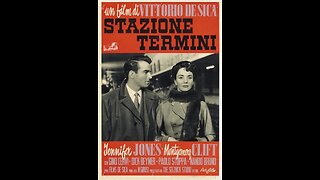 1:28:31
1:28:31
Classic Films & Movies Archive
4 days agoTerminal Station (1953) | Directed by Vittorio De Sica
182 -
 3:42:38
3:42:38
FreshandFit
12 hours agoREAL R*pe Victim Exposes Shannon Sharpe Accuser As Liar!
70.1K70 -
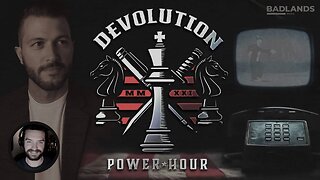 2:18:29
2:18:29
Badlands Media
14 hours agoDevolution Power Hour Ep. 376: Optics, Explosions & the War for the Narrative
144K43 -
 37:46
37:46
Stephen Gardner
12 hours ago🔥Trump NEVER expected THIS WIN as Schumer has EPIC MELTDOWN!
44K37 -
 2:02:41
2:02:41
Inverted World Live
8 hours agoNASA Engineer Says Trillions of Shape-Shifting, Cloaked Devices are Hidden on Earth| Ep. 83
39K11 -
 3:12:37
3:12:37
TimcastIRL
9 hours agoGOP Councilman DOUSED IN GAS, Set ON FIRE In Virginia, Suspect In Custody | Timcast IRL
250K90 -
 2:32:23
2:32:23
The Quartering
8 hours agoOn To The Big Bosses! Act 2 Of Expedition 33
63.1K6 -
 7:36:34
7:36:34
SpartakusLIVE
10 hours agoTiger Blood RESTOCKED and 30% off w/ code SPARTAKUS30
87.4K -
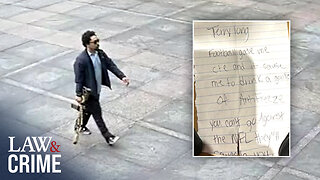 24:58
24:58
Law&Crime
11 hours ago $3.55 earnedSecond Note Leaves Disturbing Clues in New York City Killings
40.5K12 -
 1:36:57
1:36:57
Badlands Media
1 day agoAltered State S3 Ep. 39: Earthquakes, Energy Games & the Fall of the Narrative
78.3K16
